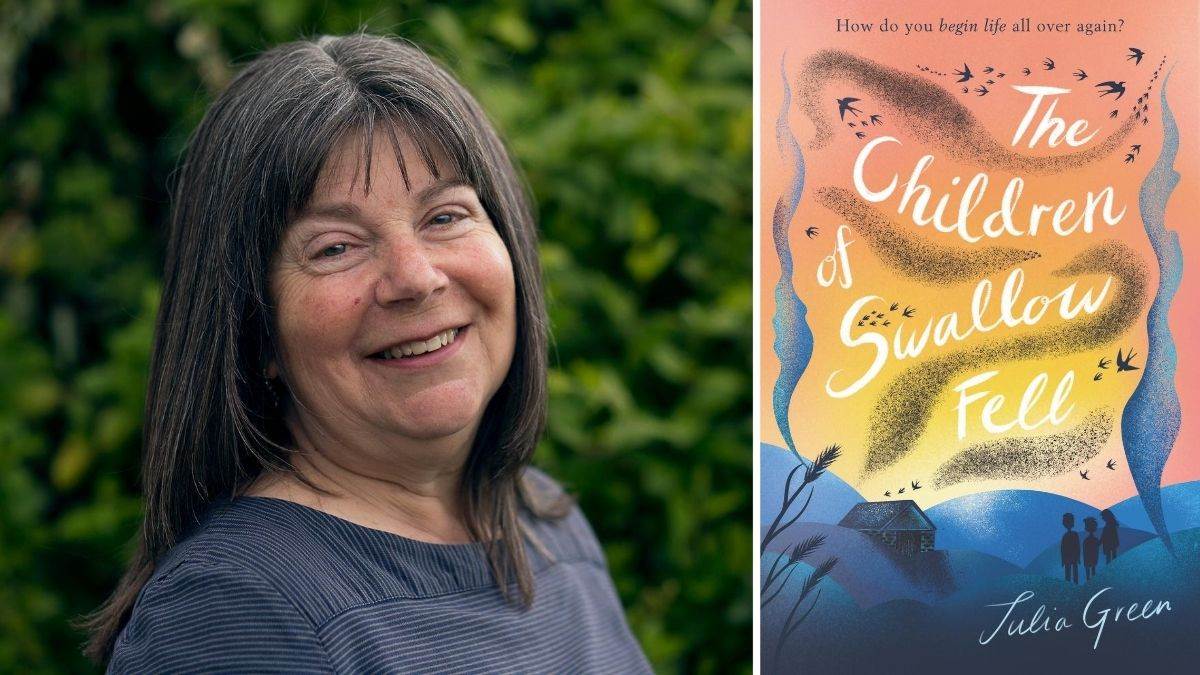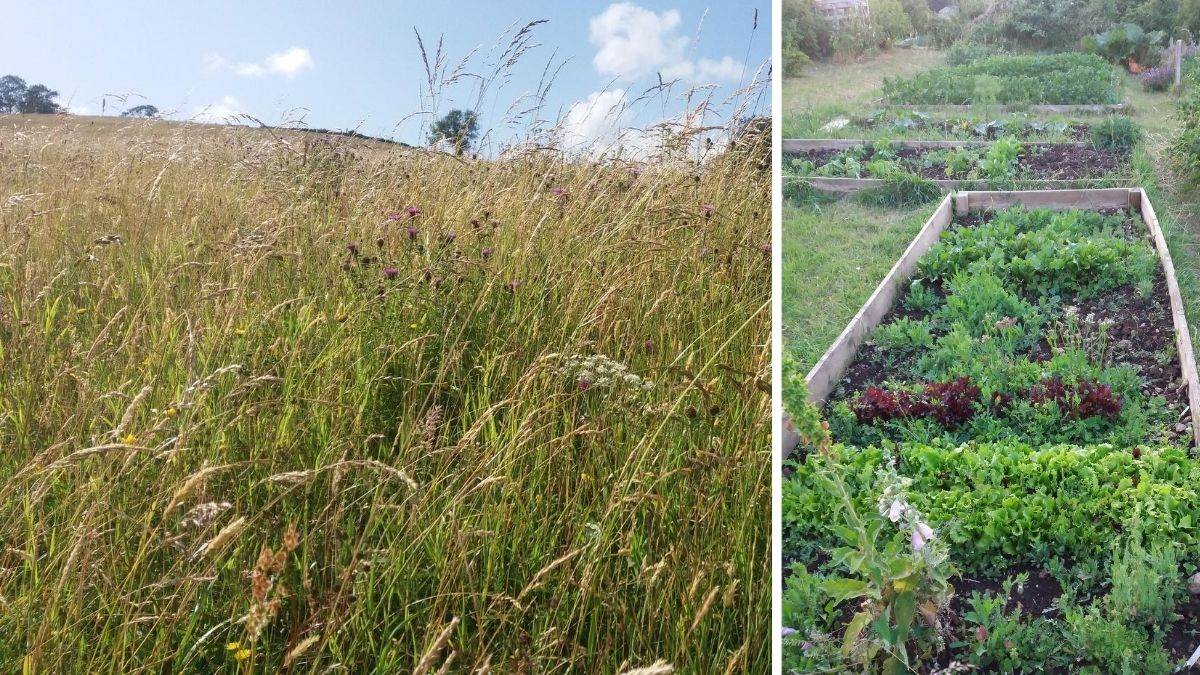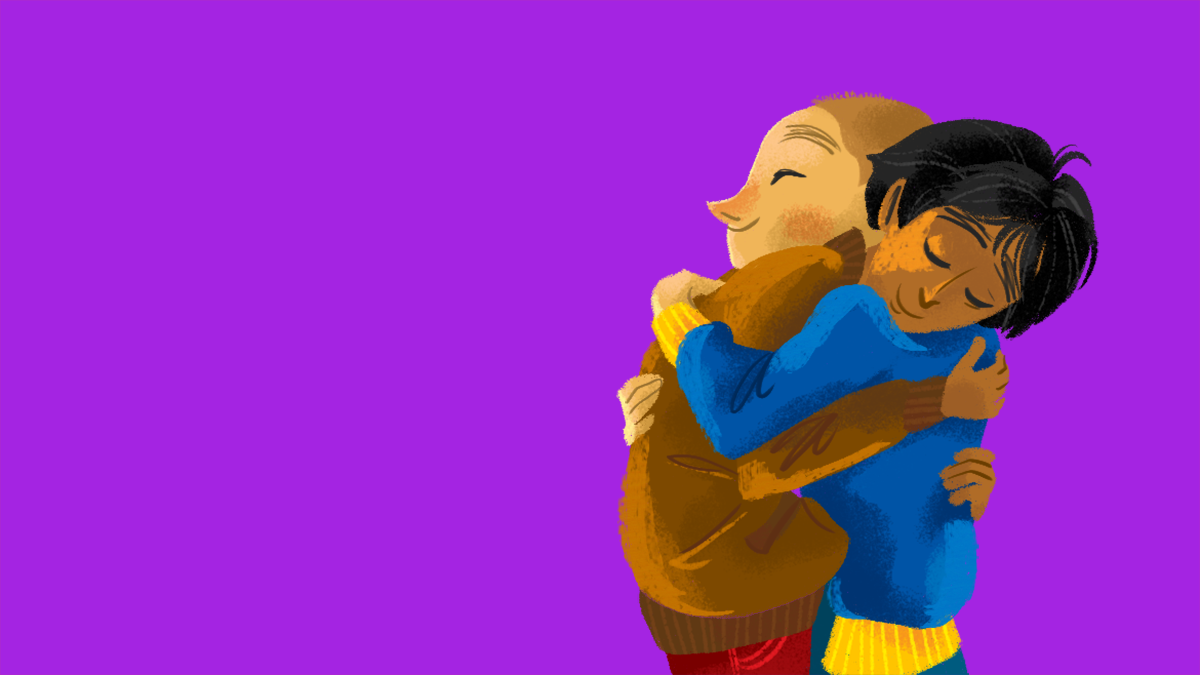"Maybe it's people like us who will change things": Julia Green's stories of hope
Published on: 03 August 2020
Writer Julia Green found a sense of peace and optimism in tending her garden during lockdown. She writes about the importance of imagining different futures through stories.
 Author Julia Green and the cover of her book, The Children of Swallow Fell
Author Julia Green and the cover of her book, The Children of Swallow Fell
When I wrote The Children of Swallow Fell I had no idea that we were on the verge of a pandemic that would challenge and change all our lives. I set my story in an imagined near-future, with a world in trouble. The ‘trouble’ I imagined was global conflict, inequalities of wealth, climate change and sickness. I wrote from the perspective of a girl, Isabella, whose life is turned upside down when war comes to her city home and she has to travel to a place of apparent safety.
My story is about change, about courage, about friendship and about hope, and it asks some big questions along the way. How do we survive when trouble comes? What do we really need for a happy life, apart from the basics of shelter, food and water? How can we help each other? How do we reconnect to the natural world? These questions seem more relevant now than ever.
When we went into ‘lockdown’ in March, I was so glad that we were living in a house with outside space. For the first time for many years, I had the time to properly garden on my allotment at the back of my house. I weeded and dug the soil, and then I sowed broad bean, beetroot, lettuce and spinach seeds, and planted seed potatoes. After a wet winter, suddenly it was the most beautiful, sunny, warm spring. My seeds germinated. There were fewer slugs and snails to chomp down the tender seedlings. Spending time outside nurturing my plants made me happy in a very simple and lovely way. And because my house is at the edge of the city, I could walk out from the house to lovely fields. The roads were so quiet that children could play and cycle on them without fear. The roads were chalked with children’s pictures and messages of hope.
Against the background of awful news as the pandemic spread and people got ill and every day we heard the numbers of people who had died, I saw and heard and smelled and touched the spring in a new way. Like so many people, in the new quiet I noticed the bird song, the abundance of life everywhere, blossom on the trees – blackthorn and wild cherry, later hawthorn and elderflower – and the abundance of wild flowers in the meadows we call the Happy Fields. The air was cleaner, fresher. The skies were more beautiful without the criss-crossing vapour trails of planes. The first swallows arrived. Then the swifts. And my vegetables grew and flourished. We picked the first salad leaves and ate them straight from the allotment.
 Photo by Julia Green
Photo by Julia Green
As I write now, we’re picking strawberries, raspberries, red and black currants, gooseberries, spinach, broad beans… and the potatoes and French beans are in flower. They’ll be ready later in the summer. I’m so excited about eating things I’ve grown with my own hands. There truly is a kind of magic about the life force in a small seed.
This feeling of being connected to and part of something bigger than ourselves is enormously important. One of the things I wanted to show in my story was how Isabella learns this, partly because she has to – her survival depends on being able to grow food – but also from observing how Rowan and Kelda, the children in the barn, live their lives. Isabella has come from a big busy city, but she always loved to see the birds above her city home – swallows, starlings, swifts. Now she has to learn about a new landscape, in the fells in northern England.
My story shows how learning to survive is about more than having shelter and food. Friendship, helping others and having a sense of community are very important too. And art and books and stories and all kinds of creativity are part of what we all need as human beings, especially when our lives are hard. That’s something that Isabella teaches little Kelda, who has never owned a book or learned to read and draw and write. Isabella herself learns how drawing in her sketchbook helps her to pay attention to the world: to see more clearly, to notice the detail. My own stories always start with words and drawings in a sketchbook with plain pages, done by hand: a kind of play. Sometimes I stick in bits and pieces – a fragment of map, a photocopied page from a book, a poem, to help me create my imagined world. In these strange locked-down days, many children have found that writing and drawing and making things has helped them feel better and happier and more able to cope.
As we come out from ‘lockdown’, many of us can see the urgent need to make changes in the way we all live on this precious planet. We want to stay connected to each other and to the natural world, we want to have clean, less polluted air and seas, space to play, walk and cycle more, to have time to read and write and draw in our own ways, to slow down and think about what is really important to us, and what makes us happy.
As a writer for young people, I write for the future. I write from a sense of hope and optimism that it is young people who will have the vision and courage to make the changes that are needed in the world. As 15-year-old Holly says to Isabella, ‘Maybe it’s people like us who will change things. People who can see new, better ways to live on our beautiful planet.’
We need stories now more than ever - to escape to, to give us comfort, to help us see the world in different ways and imagine different futures.
Julia Green is the author of more than twenty novels and short stories for young people, including Carnegie-nominated To the Edge of the World and The House of Light. Her new book The Children of Swallow Fell is published by Oxford University Press August 6th 2020.
Other stories about survival, friendship, and hope
 Illustration by Erika Meza
Illustration by Erika Meza
The Wild Way Home by Sophie Kirtley
The House of Light by Julia Green
Where the River Runs Gold by Sita Brahmachari
Topics: Features





